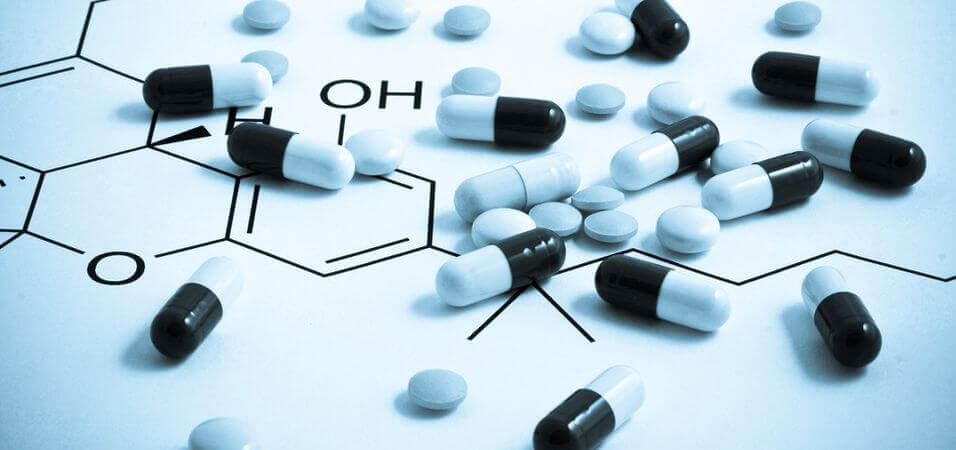Look at most popular pre-workout supplements and you’ll find they have several ingredients common.
L-citrulline is one of them.
Its name comes from citrullus, the Latin word for watermelon, which is a natural source of it. Other food sources include peanuts, soybeans, and kidney beans.
Most supplements aren’t all that special and can’t live up to the hype, but, as you’ll see, L-citrulline is one of the proven winners.
And in this article, we’re going to answer all your questions:
- What is L-citrulline?
- What are its benefits and side effects?
- How much do you have to take to see results?
- What’s the best way to supplement with it?
- And more…
Let’s start at the top.
(If you’d prefer to skip all of the scientific mumbo jumbo, though, and you just want to know if you should take L-citruline or a different supplement to reach your goals, no problem! Just take the Legion Supplement Finder Quiz, and in less than a minute, you’ll know exactly what supplements are right for you. Click here to check it out.)
- What Is L-Citrulline?
- Why Do People Supplement with L-Citrulline?
- What Are the Benefits of L-Citrulline?
- What Is the Clinically Effective Dose of L-Citrulline?
- What Kind of Results Should I Expect From Taking L-Citrulline?
- Does L-Citrulline Have Any Side Effects?
- The Best L-Citrulline Supplements
- The Bottom Line on L-Citrulline
Table of Contents
+Want to listen to more stuff like this? Check out my podcast!
What Is L-Citrulline?

L-citrulline is a non-essential amino acid, which means you don’t necessarily have to get it from foods because the body can produce it as needed.
Essential amino acids, on the other hand, must be obtained from your diet because the body has no way to synthesize them.
And in case you’re wondering, the “L-” refers to the structure of the amino acid and denotes that it can be used to create proteins (the other type of amino acid is the “D-” form, which are found in cells but not in proteins).
Physiologically speaking, L-citrulline plays a key role in the Urea cycle, which is the process whereby the body eliminates toxic byproducts of digesting protein and generating cellular energy.
It gets its name from the fact that these waste products are converted into a substance called urea, which is expelled from the body through the urine and sweat.
Why Do People Supplement with L-Citrulline?
The main reasons why people supplement with L-citrulline are improving heart health, blood flow, and endurance, and boosting muscle growth and recovery.
This is why it’s a particularly popular supplement among athletes of all types.
It’s also often chosen over another well-known molecule involved in the Urea cycle: L-arginine.
If you’ve heard of L-arginine, you probably know it as as a “nitric oxide booster,” but research shows it’s unreliable in this mechanism (it works for some people but doesn’t for others).
The best that can be said about arginine is if you take enough (6 to 10 grams), it may or may not help you get more out of your workouts.
(Nitric oxide, by the way, is a gas produced by the body that widens blood vessels and improves blood flow.)
This explains why most nitric oxide supplements are very hit-and-miss – some people enjoy bigger pumps and better workouts and others notice absolutely nothing.
L-citrulline, on the other hand, is absorbed better than L-arginine and turns into it in the kidneys, resulting in larger and longer elevations of plasma (blood) arginine levels than supplementation with L-arginine itself.
It also elevates plasma levels of another amino acid, ornithine, which is also involved in the Urea cycle.
What Are the Benefits of L-Citrulline?

In the grand scheme of supplementation, L-citrulline is pretty obscure.
It doesn’t get nearly as much attention as molecules like creatine, beta-alanine, and fish oil, but I think it deserves a bit more of the limelight because, as you’ll see, it has quite a few science-backed health and performance benefits.
Let’s look at them one by one.
L-Citrulline Improves Physical Performance
Research shows that supplementing with L-citrulline can improve both your resistance and endurance training.
For example, in one study conducted with resistance-trained men, supplementing with 8 grams of L-citrulline before their chest workouts increased the number of reps they could do by 52%. It also significantly decreased post-workout muscle soreness.
In another study, 6 grams of L-citrulline per day increased cellular energy production (ATP) during exercise by 34%, which increases your capacity for physical output and intensity.
L-Citrulline Improves Heart Health
Arteries are blood vessels that convey oxygenated blood throughout the body.
They naturally contract and expand to control blood pressure, and it’s vital that they retain their ability to do this because if they get too stiff and rigid or, even worse, blocked, it can result in a heart attack or stroke.
As nitric oxide plays a key role in maintaining arterial health and function, anything that boosts NO levels can help keep our arteries working the way that they should. And that’s why research shows that L-citrulline can do just that.
Furthermore, it has also been shown to reduce blood pressure, which is another key factor in overall heart health.
L-Citrulline Helps with Erectile Dysfunction
Since it can influence blood flow, L-citrulline can help give guys harder boners (yeah, that’s the technical term).
It may not be as effective as erectile dysfunction drugs, but it also doesn’t have any of the potential side effects.
L-Citrulline Reduces Free Radical Damage
Free radicals are atoms or groups of atoms that can, through chemical reactions, cause damage to cells in the body.
While free radicals play a vital role in certain basic physiological processes necessary for life, excessive amounts have been associated with aging, and age dependent diseases such as cardiovascular disease, cancer, neurodegenerative disorders, and other chronic conditions.
Everyday living inevitably results in the production of free radicals, and intense exercise spikes production as well (because it places the body under large amounts of stress).
Studies show that L-citrulline helps your body better deal with the exercise-induced uptick in free radical production by priming immune cells and reducing the number of free radicals produced while working out.
What Is the Clinically Effective Dose of L-Citrulline?

“The what?” you might be thinking.
The clinically effective dose of a supplement is the amount used in the scientific studies that demonstrate its benefits.
You see, it’s not enough to just know that L-citrulline can benefit you in various ways — you need to know how much you need to take to get those benefits.
Now, when it comes to supplementing with L-citrulline, there are two widely available forms to choose from:
- L-citrulline
- Citrulline malate
And the only difference between them is citrulline malate is L-citrulline combined with malic acid, which is a natural substance found in many fruits that’s involved in the creation of cellular energy.
There isn’t much human research available on the potential benefits of supplementing with malic acid, but it has been shown to improve endurance in the animal model. There’s also evidence that, when combined with magnesium, it can help treat fibromyalgia. It may offer cardiovascular benefits as well.
I prefer and recommend citrulline malate over L-citrulline for two reasons:
- It’s likely that malic acid confers additional health and performance benefits.
- It’s the form used in most studies demonstrating the performance benefits associated with L-citrulline.
That is, there’s no downside to citrulline malate and it’s likely superior to just L-citrulline, at least for the purpose of having better workouts.
So, with that out of the way, let’s now look at the clinically effective doses of the two forms.
For non-exercise-related benefits, take 3 grams of L-citrulline or 5 to 6 grams of citrulline malate per day.
For improving exercise performance, take 3 to 5 grams of L-citrulline or 6 to 8 grams of citrulline malate per day.
What Kind of Results Should I Expect From Taking L-Citrulline?
If you’re excited about citrulline by now, I understand.
There aren’t many supplements that have been scientifically proven to improve both exercise performance and physical health.
Let’s remember, though, that supplements don’t build great physiques and healthy bodies. Dedication to proper training and nutrition does.
That said, here’s what you can expect from L-citrulline (or, better, citrulline malate) supplementation:
- Improved circulation
- Bigger “pumps”
- More muscle endurance
- Higher energy in your workouts and less fatigue
- Decreased muscle soreness
Does L-Citrulline Have Any Side Effects?

Since being discovered in 1930, there have been no reported side effects of supplementing with L-citrulline, even at high doses.
That said, it’s known to interact adversely with certain medications including nitrates and drugs for erectile dysfunction.
As with all supplements, it’s better to be safe than sorry, so if you’re taking any medications or are pregnant or breastfeeding, check with your doctor before jumping onto the L-citrulline bandwagon.
The Best L-Citrulline Supplements
L-citrulline is often found in pre-workout supplements, and now you know why.
Remember, though, if a pre-workout supplement contains less than 6 grams of citrulline malate per serving (and calls for one serving per day), don’t buy it.
It’s underdosed. You want to see 6 to 8 grams and the closer to 8 grams, the better.
That also means you should stay away from supplements containing “proprietary blends,” because there’s no way for you to know the doses of each ingredient in the blends.
(That’s intentional, by the way — supplement companies don’t want you to see how much they’re scrimping in their formulations.)
Now, if you’ve made it this far in the article, you’re probably not surprised to learn that my pre-workout supplement Pulse contains a clinically effective dose of 8 grams of citrulline malate per serving. (This is the case for both regular and caffeine-free Pulse.)
It also contains clinically effective doses of 5 other performance-enhancing ingredients:
- Caffeine
Caffeine is good for more than the energy boost. It also increases muscle endurance and strength.
- Beta-alanine
Beta-alanine is a naturally occurring amino acid that reduces exercise-induced fatigue, improves anaerobic exercise capacity, and can accelerate muscle growth.
- Betaine
Betaine is a compound found in plants like beets that improves muscle endurance, increases strength, and increases human growth hormone and insulin-like growth factor 1 production in response to acute exercise.
- Ornithine
Ornithine is an amino acid found in high amounts in dairy and meat that reduces fatigue in prolonged exercise and promotes lipid oxidation (the burning of fat for energy as opposed to carbohydrate or glycogen).
- Theanine
Theanine is an amino acid found primarily in tea that reduces the effects of mental and physical stress, increases the production of nitric oxide, which improves blood flow, and improves alertness, focus, attention, memory, mental task performance, and mood.
Oh, and if you aren’t sure if Pulse is right for you or if another supplement might be a better fit for your budget, circumstances, and goals, then take the Legion Supplement Finder Quiz! In less than a minute, it’ll tell you exactly what supplements are right for you. Click here to check it out.
The Bottom Line on L-Citrulline
L-citrulline is becoming more popular these days, and for good reason.
Studies clearly show that it can help you have better workouts, recover faster, and support your heart health. And with no side effects!
All you need to do to enjoy these benefits is take 6 to 8 grams of citrulline malate per day.
What’s your take on L-citrulline? Have anything else to share? Let me know in the comments below!
Scientific References +
- Tang, X., Liu, J., Dong, W., Li, P., Li, L., Lin, C., Zheng, Y., Hou, J., & Li, D. (2013). The cardioprotective effects of citric acid and L-malic acid on myocardial ischemia/reperfusion injury. Evidence-Based Complementary and Alternative Medicine, 2013. https://doi.org/10.1155/2013/820695
- Alegre, C., Barceló, M., Jardí, R., Rodríguez-Frias, F., & Camprubí, S. (2012). α1-Antitrypsin in Fibromyalgia: Results of a Randomized, Placebo-Controlled, Double-Blind and Crossover Pilot Trial. Musculoskeletal Care, 10(3), 178–183. https://doi.org/10.1002/msc.1000
- Wu, J. L., Wu, Q. P., Huang, J. M., Chen, R., Cai, M., & Tan, J. B. (2007). Effects of L-Malate on Physical Stamina and Activities of Enzymes Related to the Malate-Aspartate Shuttle in Liver of Mice. Physiol. Res, 56, 213–220. http://www.biomed.cas.cz/physiolres
- Sureda, A., Córdova, A., Ferrer, M. D., Tauler, P., Pérez, G., Tur, J. A., & Pons, A. (2009). Effects of L-citrulline oral supplementation on polymorphonuclear neutrophils oxidative burst and nitric oxide production after exercise. Free Radical Research, 43(9), 828–835. https://doi.org/10.1080/10715760903071664
- Guerra-Araiza, C., Álvarez-Mejía, A. L., Sánchez-Torres, S., Farfan-García, E., Mondragón-Lozano, R., Pinto-Almazán, R., & Salgado-Ceballos, H. (2013). Effect of natural exogenous antioxidants on aging and on neurodegenerative diseases. In Free Radical Research (Vol. 47, Issues 6–7, pp. 451–462). https://doi.org/10.3109/10715762.2013.795649
- Pacher, P., Beckman, J. S., & Liaudet, L. (2007). Nitric oxide and peroxynitrite in health and disease. In Physiological Reviews (Vol. 87, Issue 1, pp. 315–424). Physiol Rev. https://doi.org/10.1152/physrev.00029.2006
- Cormio, L., De Siati, M., Lorusso, F., Selvaggio, O., Mirabella, L., Sanguedolce, F., & Carrieri, G. (2011). Oral L-citrulline supplementation improves erection hardness in men with mild erectile dysfunction. Urology, 77(1), 119–122. https://doi.org/10.1016/j.urology.2010.08.028
- Balderas-Munãoz, K., Castillo-Martínez, L., Orea-Tejeda, A., Infante-Vázquez, O., Utrera-Lagunas, M., Martínez-Memije, R., Keirns-Davis, C., Becerra-Luna, B., & Sánchez-Vidal, G. (2012). Improvement of ventricular function in systolic heart failure patients with oral L-citrulline supplementation. Cardiology Journal, 19(6), 612–617. https://doi.org/10.5603/CJ.2012.0113
- Ochiai, M., Hayashi, T., Morita, M., Ina, K., Maeda, M., Watanabe, F., & Morishita, K. (2012). Short-term effects of L-citrulline supplementation on arterial stiffness in middle-aged men. International Journal of Cardiology, 155(2), 257–261. https://doi.org/10.1016/j.ijcard.2010.10.004
- Bendahan, D., Mattei, J. P., Ghattas, B., Confort-Gouny, S., Le Guern, M. E., & Cozzone, P. J. (2002). Citrulline/malate promotes aerobic energy production in human exercising muscle. British Journal of Sports Medicine, 36(4), 282–289. https://doi.org/10.1136/bjsm.36.4.282
- Pérez-Guisado, J., & Jakeman, P. M. (2010). Citrulline malate enhances athletic anaerobic performance and relieves muscle soreness. Journal of Strength and Conditioning Research, 24(5), 1215–1222. https://doi.org/10.1519/JSC.0b013e3181cb28e0
- Collins, J. K., Wu, G., Perkins-Veazie, P., Spears, K., Claypool, P. L., Baker, R. A., & Clevidence, B. A. (2007). Watermelon consumption increases plasma arginine concentrations in adults. Nutrition, 23(3), 261–266. https://doi.org/10.1016/j.nut.2007.01.005
- Curis, E., Crenn, P., & Cynober, L. (2007). Citrulline and the gut. In Current Opinion in Clinical Nutrition and Metabolic Care (Vol. 10, Issue 5, pp. 620–626). Curr Opin Clin Nutr Metab Care. https://doi.org/10.1097/MCO.0b013e32829fb38d
- Paddon-Jones, D., Børsheim, E., & Wolfe, R. R. (2004). Potential ergogenic effects of arginine and creatine supplementation. Journal of Nutrition, 134(10 SUPPL.). https://doi.org/10.1093/jn/134.10.2888s
- Tang, J. E., Lysecki, P. J., Manolakos, J. J., MacDonald, M. J., Tarnopolsky, M. A., & Phillips, S. M. (2011). Bolus arginine supplementation affects neither muscle blood flow nor muscle protein synthesis in young men at rest or after resistance exercise. Journal of Nutrition, 141(2), 195–200. https://doi.org/10.3945/jn.110.130138
- Álvares, T. S., Meirelles, C. M., Bhambhani, Y. N., Paschoalin, V. M. F., & Gomes, P. S. C. (2011). L-arginine as a potential ergogenic aid in healthy subjects. In Sports Medicine (Vol. 41, Issue 3, pp. 233–248). Springer International Publishing. https://doi.org/10.2165/11538590-000000000-00000
- Liu, T. H., Wu, C. L., Chiang, C. W., Lo, Y. W., Tseng, H. F., & Chang, C. K. (2009). No effect of short-term arginine supplementation on nitric oxide production, metabolism and performance in intermittent exercise in athletes. Journal of Nutritional Biochemistry, 20(6), 462–468. https://doi.org/10.1016/j.jnutbio.2008.05.005
- Astorino TA, Rohmann RL, Firth K. Effect of caffeine ingestion on one-repetition maximum muscular strength. Eur J Appl Physiol. 2008;102(2):127-132. doi:10.1007/s00421-007-0557-x
- Derave W, Özdemir MS, Harris RC, et al. β-Alanine supplementation augments muscle carnosine content and attenuates fatigue during repeated isokinetic contraction bouts in trained sprinters. J Appl Physiol. 2007;103(5):1736-1743. doi:10.1152/japplphysiol.00397.2007
- Smith AE, Walter AA, Graef JL, et al. Effects of β-alanine supplementation and high-intensity interval training on endurance performance and body composition in men; a double-blind trial. J Int Soc Sports Nutr. 2009;6:5. doi:10.1186/1550-2783-6-5
- Kern BD, Robinson TL. Effects of β-alanine supplementation on performance and body composition in collegiate wrestlers and football players. J Strength Cond Res. 2011;25(7):1804-1815. doi:10.1519/JSC.0b013e3181e741cf
- Trepanowski JF, Farney TM, McCarthy CG, Schilling BK, Craig SA, Bloomer RJ. The effects of chronic betaine supplementation on exercise performance, skeletal muscle oxygen saturation, and associated biochemical parameters in resistance trained men. J Strength Cond Res. 2011;25(12):3461-3471. doi:10.1519/JSC.0b013e318217d48d
- Lee EC, Maresh CM, Kraemer WJ, et al. Ergogenic effects of betaine supplementation on strength and power performance. J Int Soc Sports Nutr. 2010;7:27. doi:10.1186/1550-2783-7-27
- Apicella JM, Lee EC, Bailey BL, et al. Betaine supplementation enhances anabolic endocrine and Akt signaling in response to acute bouts of exercise. Eur J Appl Physiol. 2013;113(3):793-802. doi:10.1007/s00421-012-2492-8
- Sugino T, Shirai T, Kajimoto Y, Kajimoto O. l-Ornithine supplementation attenuates physical fatigue in healthy volunteers by modulating lipid and amino acid metabolism. Nutr Res. 2008;28(11):738-743. doi:10.1016/j.nutres.2008.08.008
- Kimura K, Ozeki M, Juneja LR, Ohira H. l-Theanine reduces psychological and physiological stress responses. Biol Psychol. 2007;74(1):39-45. doi:10.1016/j.biopsycho.2006.06.006
- Siamwala JH, Dias PM, Majumder S, et al. L-Theanine promotes nitric oxide production in endothelial cells through eNOS phosphorylation. J Nutr Biochem. 2013;24(3):595-605. doi:10.1016/j.jnutbio.2012.02.016
- Bryan J. Psychological effects of dietary components of tea: Caffeine and L-theanine. Nutr Rev. 2008;66(2):82-90. doi:10.1111/j.1753-4887.2007.00011.x
- Foxe JJ, Morie KP, Laud PJ, Rowson MJ, De Bruin EA, Kelly SP. Assessing the effects of caffeine and theanine on the maintenance of vigilance during a sustained attention task. Neuropharmacology. 2012;62(7):2320-2327. doi:10.1016/j.neuropharm.2012.01.020
- Nobre AC, Rao A, Owen GN. L-theanine, a natural constituent in tea, and its effect on mental state. Asia Pac J Clin Nutr. 2008;17(SUPPL. 1):167-168. doi:10.6133/apjcn.2008.17.s1.40
- Haskell CF, Kennedy DO, Milne AL, Wesnes KA, Scholey AB. The effects of l-theanine, caffeine and their combination on cognition and mood. Biol Psychol. 2008;77(2):113-122. doi:10.1016/j.biopsycho.2007.09.008










